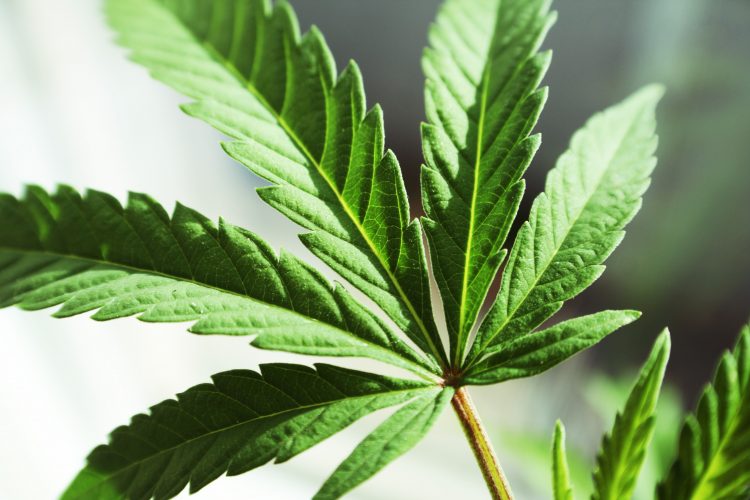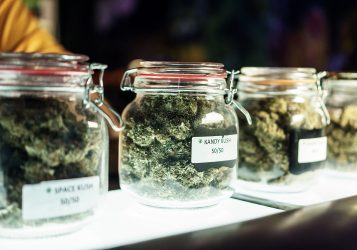Is alcohol worse than cannabis?
- Like
- Digg
- Del
- Tumblr
- VKontakte
- Buffer
- Love This
- Odnoklassniki
- Meneame
- Blogger
- Amazon
- Yahoo Mail
- Gmail
- AOL
- Newsvine
- HackerNews
- Evernote
- MySpace
- Mail.ru
- Viadeo
- Line
- Comments
- Yummly
- SMS
- Viber
- Telegram
- Subscribe
- Skype
- Facebook Messenger
- Kakao
- LiveJournal
- Yammer
- Edgar
- Fintel
- Mix
- Instapaper
- Copy Link
Posted: 10 January 2020 | Phil Patterson | No comments yet
Drunken accidents are on the rise, yet alcohol remains a perfectly legal beverage. Here, Phil Patterson of Real Cannabis Club questions whether industry is being too hard on cannabis and if, when compared to alcohol, it is really that bad…


It is well documented, however, that the psychoactive element within the cannabis plant, known as THC, has been linked with causing psychosis and other mental health problems from sustained or prolonged use. What is now remarkable, however, is the lack of coherent medical advice to suggest that controlled cannabis usage has a deleterious effect upon wellbeing. In short, the theory that cannabis has been criminalised to protect us has very little literature or empirical evidence to support it.
Stigma
In the UK, at time of writing, cannabis remains a tightly regulated substance and is designated as a Class B drug. It is illegal to cultivate cannabis in the UK, illegal to sell it, and


Binge drinking is on the rise in the UK, with special occasions such as stag and hen dos further fuelling this drinking culture
possession of cannabis is also a punishable offence.
The vernacular here is important. Referred to in legal frameworks as a “drug” or “substance”. cannabis is, in fact, just a plant and therefore entirely natural. Is broccoli a nefarious ‘substance’? Is the dreaded artichoke a ‘drug’? No. It is, in my estimation, misleading to include cannabis in a framework that classifies it alongside speed and barbiturates. Perhaps it is this branding issue that has triggered an enduring stigma towards cannabis?
A typical energy drink ingredient list will be comprised of circa 20 composite ingredients, often including such things as acids, preservatives, sugars and artificial sweeteners. The dreaded ‘E numbers’ also have a starring role. On the other hand, cannabis is comprised of just one core ingredient – cannabis. In the age of being environmentally ‘woke’, it is entirely organic and vegan and has a carbon footprint of zero.
It could be argued that this controlled regulatory environment has created negative attitudes towards cannabis. Illegality of anything lends a natural stigma, a caution that is embedded into a cultural awareness.
Like any controlled substance, illegality drives a heightened demand for ‘black market’ supply. This underground trade also leads to ineffective cultivation of cannabis itself. Like any black market item, traders are incentivised to boost their margins by reducing their cost base. ‘Skunk’ is a colloquial term for a strain of cannabis that has been infused with other chemical additives to make it cheaper.
What is the difference between cannabis and CBD?


In Canada, Cannabis was legalised in 2018, but it’s tightly controlled and available only in licensed dispensaries
The cannabis plant is derived from the cannabacae family of vegetation, which has three strains – indica, sativa and ruderalis. Indica and sativa are the typical strains of the plant that are cultivated for consumption.
The cannabis plant is typically categorised into two product groups: hemp and marijuana.
Hemp and marijuana contain large concentrations of cannabidiol (CBD). CBD and hemp contain only trace amounts of THC, whereas marijuana contains significant amounts.
Hemp oil, however, does not contain any cannabinoids but CBD oil does – cannabinoids regulate the internal human endocannabinoid system. It is these cannabinoids that are said to deliver healing and wellbeing to users.
Usage and effects
There is noteworthy empirical evidence to suggest that CBD oil has therapeutic properties. It is consumed to combat a wide array of ailments, including joint pain, anxiety and autoimmune conditions. There is also a school of thought emerging that cannabis oil is effective in dealing with the symptoms of cancer. While there are no medical studies or approved literature, there is a growing number of case studies that claim it is efficacious as a wellness product. Given this, it seems unreasonable for cannabis to continue to endure a stigma while tobacco, high-concentration alcohol and energy drinks are not regulated. Judging a plant on the same playing field as these substances is, as far as I’m concerned, not right.
I believe cannabis-based products are at the forefront of a wellness revolution. It seems perverse that elements of cannabis remain legal, while regulators turn a blind eye to the damage that alcohol continues to cause.
About the author
Phil Patterson spent five years in Venture Capital and held senior roles in business before leaving to pursue a passion: promoting and removing the stigma around cannabis. This led to the creation of Real Cannabis Club, which aims to build trust around cannabis by publishing its supply chain on blockchain and making cannabis more affordable and accessible. Real Cannabis Club launched in November 2019 and offers a sativa-based Gold range of oils and capsules, with plans to expand into a range of cannabis-based goods.
References
1. https://www.thelancet.com/journals/lancet/article/PIIS0140-6736(18)32744-2/fulltext
2. https://www.theguardian.com/global/2018/apr/08/when-stag-nights-go-wrong






